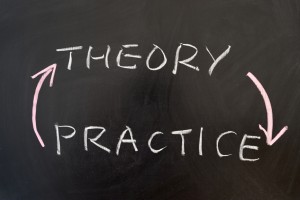Sep
18

Posted by nnlmneo on September 18th, 2015
Posted in: Blog
 Last week, I reviewed Tim David’s article “Your Elevator Pitch Needs an Elevator Pitch.” This week, Karen Vargas (my co-blogger) and I decided to challenge ourselves and write an elevator pitch for the Outreach Evaluation Resource Center (aka OERC). So this week’s post is our example of how to implement David’s approach.
Last week, I reviewed Tim David’s article “Your Elevator Pitch Needs an Elevator Pitch.” This week, Karen Vargas (my co-blogger) and I decided to challenge ourselves and write an elevator pitch for the Outreach Evaluation Resource Center (aka OERC). So this week’s post is our example of how to implement David’s approach.
The Set Up
For those of you who don’t already know about us, the OERC offers evaluation training and consultation to members of the National Network of Libraries of Medicine (NN/LM). Libraries and organizations from across the US join the NN/LM to help promote health information access and use. They specifically promote resources of the National Library of Medicine, which funds the program. The OERC’s charge includes helping NN/LM members use evaluation to identify their best outreach strategies and share them with colleagues, as well as to promote the results of their work.
The NN/LM is managed by the National Network Office at the National Library of Medicine. The position of NNO Head is currently vacant. In anticipation of the day when our new leader is hired, we decided to think about how to pitch the OERC.
The Pitch
Let’s imagine that I’m on the elevator with the new head of NNO. This is purely hypothetical, of course. Reality may (probably will) vary. When we incorporated one of David’s elements, we tagged it in parentheses.
OERC: “You know how the RMLs and organizations in the NN/LM do great and noble work funded by NLM, but we aren’t always sure how to get the message across about what we do?” (problem question)
NNO Head: “Well, yes.”
OERC: “Everyone in the network is hungry to know what strategies work well and which ones are a waste of time. We want to be able to share lessons learned about how to do outreach. Ideally, we want to provide solid evidence that allows us to talk credibly about the results of our good work.” (noddable)
NNO Head: “I can agree that’s important.”
OERC: “Well, the OERC helps NN/LM members use evaluation to learn what strategies work well. We also teach them how to take advantage of their evaluation data to get the message out about positive results and lessons learned.” (curiosity statement)
NNO Head: Really? How do you do that?
OERC: “We combine training with one-to-one coaching. For example, an NN/LM outreach coordinator, Michelle Eberle, led one of the New England Region’s Communities of Interests, which is one of NER’s innovative approaches to promoting use of NLM consumer health resources. Michelle has taken a lot of our training sessions over the years, so she developed an evaluation questionnaire for the COI, then asked me to review it. In the end, she got some good evidence of success and was able to publish an article about her project in MLA News. So that project was shared with a lot of health sciences librarians both in and outside of her region. That’s just one example. In the past year alone, two of us taught evaluation webinars to about 580 participants and provided consultations on 31 projects.” (example)
The Close
Note: Tim David is a corporate communication consultant, so his elevator pitch was designed to produce a meeting with a potential client. Our goal is similar. We would hope for a meeting with the new Head of NNO to present more details about how we support the NN/LM. It will allow him or her to better understand our role (and our value) to the network. If our elevator pitch worked, we think the conversation would end something like this:
NNO Head: “It sounds as though you have other good stories to share.”
OERC: “When you have some time, we would love to schedule a meeting to share more about some of our other evaluation projects with the NN/LM libraries and organizations. We would be happy to put together a presentation for you.”
Sources:
David T. Your elevator pitch needs an elevator pitch. Harvard Business Review. 30 Dec 2014. Retrieved 13 Sept 2015. https://hbr.org/2014/12/your-elevator-pitch-needs-an-elevator-pitch
Eberle, Michelle L.; Malachowski, Margot; Richetelle, Alberta; Lahoz, Monina; McIntosh, Linda; Moore, Bradley; Searl, Jen; and Kronick, Judy, “Clear: Conversations: A Collaborative Regional Project to Help Patients Improve their Health Visits” (2014). National Network of Libraries of Medicine New England Region (NN/LM NER) Repository. Paper 25.
http://escholarship.umassmed.edu/ner/25. (Michelle’s article about this project was published in the MLA News, August 2014, titled: Clear: Conversations: A Project to Help Patients Improve Their Health Visits.)